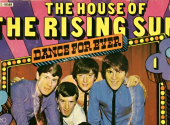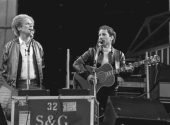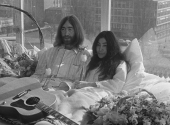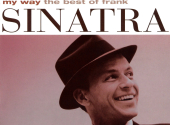
Story of a Hit #14: "Skyfall"
Following the success of her second album, Adele was chosen to compose and record the title song to the new Bond film Skyfall. What she created became arguably the most famous of all the title songs composed for the legendary film series. Today we're looking at Adele's "Skyfall" and asking, why is it the pre-eminent song in the Bond universe?
Released on the 5th of October 2012, marking 50 years since the very first Bond film Dr. No, and preceding the new film by 2 and a half weeks. The song itself is regarded by many as the best of all the Bond songs, which is fitting, given that the film Skyfall is also the highest-grossing of all the Bond films.
Bond title songs are a phenomenon of their own, with a canon of hits that have encompassed elements of popular music through almost 6 decades of popular music, that at the same time have maintained a sense of their "Bondness". When Adele recorded "Skyfall" she joined a plethora of enormously influential artists who had recorded previous songs, like Paul McCartney, Madonna, Tom Jones and Tina Turner, to name only a few – and Adele was only 24 at the time.
It was composed by Adele herself, which is no surprise given she has written most of her songs. It's one of the things that really stood out about her when she released her first album 19, at the young age of, well, 19. And with the following album, 21, she captured the attention of the world, with songs like "Rolling in the Deep" and "Someone Like You", which still sit in the top 20 of the best-selling digital singles of all time.
Paul Epworth, who worked on multiple songs on Adele's album 21 including "Rolling in the Deep", also co-wrote and produced, and the mark of their collaborative songwriting genius is all over it. Orchestration was done by the prolific J. A. C. Redford.
Adele was chosen to write the next Bond song, according to Lia Vollack, then president of worldwide music for Sony, because "stylistically, it just felt right to bring back that classic Shirley Bassey feel that you associate with those early Bond films." According to Sam Mendes, Adele said "I write songs about myself, how can I make a Bond song?" to which he answered, "Just write a personal song! (Carly Simon's) "Nobody Does it Better" was a love song."
There have been multiple award-nominated and chart-ranking Bond songs, but "Skyfall" was the first to win an Academy Award and a Grammy, as well as a series of other awards. And it set the bar, because the following two Bond songs, "Writings on the Wall" from Spectre and "No Time to Die" also managed to grab Academy awards.
One of the things about it that really captures the right atmosphere is how the song intentionally uses elements of Monty Norman's original "James Bond Theme". This is the theme, first used in the opening credits of Dr. No, that has been featured in every single movie since then. In many ways, it is the foundation of many of the musical ideas that the Bond franchise has used throughout 25 films.
Norman said about Adele's Skyfall: "I think it's very good, it works for the film very well and I'm honoured that it gives a large nod towards my original." It does, and I would argue it's one of the reasons many people think it is the best Bond song in over 50 years.
The "James Bond Theme" uses a very particular harmonic movement – specifically, on a minor chord, it uses the movement of the 5th of the chord up two half steps, and back again. That's the motif you can hear the orchestra playing in the very beginning, swelling as it rises up, and diminishing as it descends. You can actually hear it directly quoted in "Skyfall" at 1:50.
But that's not the only use of this idea in Skyfall, in fact almost the entire song is built around the chord progression that is derived from that motif. What Adele and Epworth did, was they echoed it by moving the bass downwards – it hits the same minor 6th, but then instead of moving up a half step, it moves further down to the 4th – forming a chord progression of Cm, Ab and F, but leaving the tonality of the chords somewhat ambiguous. This is exactly the progression you hear in the piano throughout the intro and verse.
The magic happens when the chorus kicks in, and this same progression is padded out by other instruments, including a 77-piece orchestra. Every time the chorus runs around for the second time, the orchestra turns that F chord major – and the A note that makes the chord's tonality major doesn't belong in the key of C minor, but is exactly the note missing from Norman's original motif. It is a tiny detail, but it's goosebump worthy, occurring 3 times at exactly 1:44, 2:48 and 4:04, and framing the song in a whole sense of bittersweet melancholy.
Of course, this motif has been used many times in Bond songs – according to the video above, 15 times – including "Goldfinger", "Thunderball" and "You Only Live Twice". In fact, the use of the bass line and major chord 4th that I described above is actually used in the Bond songs from the previous two films Casino Royale and Quantum of Solace. But perhaps what they lacked was a cohesive build-up to that moment – a build-up that the structure, composition, orchestration and, of course, the exquisite voice of Adele beautifully captures.
What do you think, is "Skyfall" the best Bond song of them all? Which one would you pick?
Let us know your opinion in the comments below!
If you have found an error or typo in the article, please let us know by e-mail info@insounder.org.





